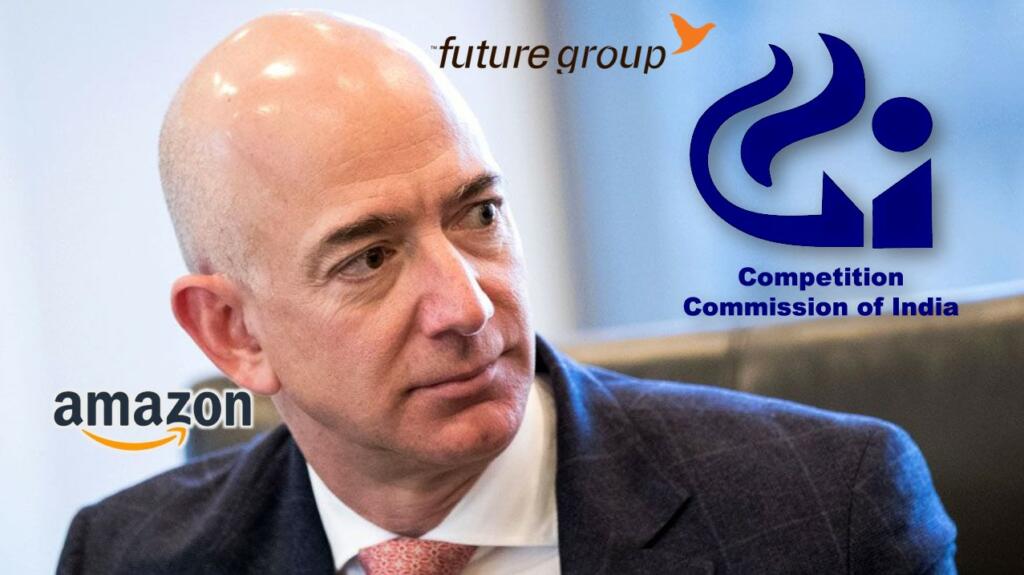Last year in August, Mukesh Ambani had cracked a deal that would have established Reliance’s presence in India’s e-commerce market and overturned the competition posed by Amazon and Flipkart.
As reported by TFI, Reliance Retail Ventures Limited (RRVL) bought Kishore Biyani led Future Retail Limited for Rs 24,713 crore. However, Amazon, an investor in Future Coupons that in turn is a shareholder in Future Retail Ltd. vehemently objected to the deal.
Fuming that Reliance and Future group were going to destroy Amazon, Jeff Bezos took the Future Group to court on the basis of a non-competitive clause that it has signed with the wholly-owned but unlisted subsidiary of the Future Group.
Amazon, being a devious corporation, stalled the deal. In a nutshell, a measly $200 million investment in Future Group in 2019 by Amazon stopped the $3.4 billion deal between Reliance and Future Group.
Anti-trust agency quashes the Amazon deal with Future group:
However, India’s antitrust agency Competition Commission of India (CCI) on Friday suspended Amazon’s deal with Future Group.
The regulator ruled that the US-based company had suppressed information while seeking regulatory approval on investment into Indian retailer Future Group two years ago.
Meaning, Amazon had hidden the details of its investment in Future group and made false and incorrect statements.
CCI imposes a penalty and asks Amazon to file for fresh approval:
The regulator in its multi-page order has stated that “it is necessary to examine the combination (deal) afresh,” adding its approval from 2019 “shall remain in abeyance” until then. To add insult to injury, the agency also imposed a penalty of around 2 billion rupees ($27 million) on Amazon and has asked it to start from scratch regarding the approval process.
The switcheroo by the anti-trust agency has put Amazon on the backfoot. Already fighting the case in courts, it may now have to file a fresh petition to argue that its deal, in the first place was valid.
The court cases:
Reeling after the devasting impact of the first wave of the COVID pandemic, the future group needed the sale to go through quickly. Kishore Biyani recently remarked that the company lost Rs 7,000 crore in revenue in the first three-four months of the pandemic phase.
Thus, the plan was to merge wholesale, logistics and warehousing assets into one entity — Future Enterprises Ltd and then transfer it to RRVL.
But according to Amazon, the non-competitive clause prohibited the Future Group from handing over the ownership to a competitive company like Reliance — and thus, it went straight to court.
However, the lower court ruled that the clause was signed with a subsidiary and not the Future Retail Limited which Reliance bought, and thus the claims made by Amazon were not valid.
The Jeff Bezos-owned company, however, didn’t drop the towel and went to Singapore International Arbitration Centre (SIAC). The Emergency Arbitrator (EA) gave a ruling in favour of Amazon this time and barred Future group from moving ahead with the proceedings.
But the CCI where the case went later was suspicious from the get-go. Amazon sensed it and earlier this month tried to stall the proceedings by demanding postponement of the case. However, the CCI didn’t cede to its demands.
Claiming that Amazon was trying to browbeat the CCI, Future Group in its comment said, “The counsels to Amazon, in utter disregard to the norms and utter disrespect to the Indian statutory regulatory authority, refused to argue the matter. They walked out of the proceedings in an attempt to browbeat the CCI,”
Read More: Amazon has a huge meltdown in CCI proceeding against Future group
We live in a world where capitalistic giants with their billions of dollars in bank accounts spar with each other for fun to dominate a country to churn massive profits.
Most billionaires think of themselves as bigger than a country or its government. Jeff Bezos thought the same but has been swiftly given a dose of a reality check by the Indian government.
It has been made to eat the humble pie and that should serve a lesson to foreign enterprises. You cannot barge in the country and do as you please. India is a competitive market and if one doesn’t adhere to the laws, such judgments will indeed come your way. Be prepared for it, as Amazon found the hard way.
